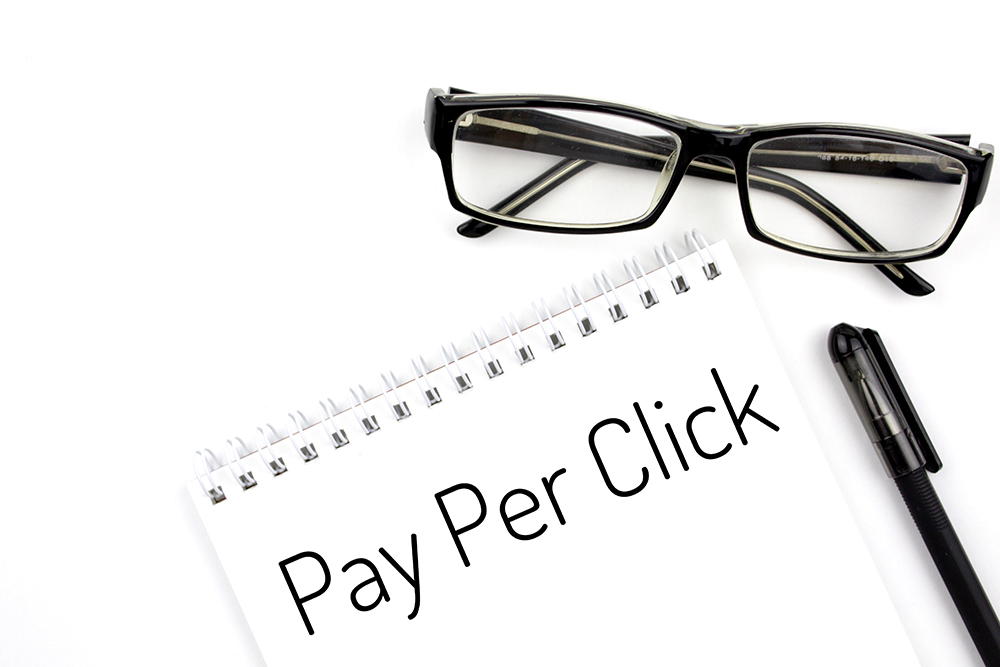Pay-Per-Click Advertisement

Pay-per-click, or PPC, is a form of online advertisement in which the advertiser is charged a fee each time one of their adverts is clicked. In essence, you are paying for targeted online traffic (or landing page or app). When PPC is implemented properly, the cost is negligible because each click is worth more than you are charged. For instance, if you pay $3 for a click and the click generates a $300 transaction, you have profited handsomely.
PPC advertisement can be composed of text, graphics, videos, or a combination of these, and they come in a variety of sizes and forms (literally). They can show up on websites, social media platforms, search engines, and more.
One of the most well-known types of PPC is search engine advertisement, commonly referred to as sponsored search or search engine marketing. When someone searches for something related to their product or service, it enables advertisers to compete for ad placement in the sponsored links of a search engine. If we bid on the term “google ads audit,” for instance, our advertisement for our free Google Ads Performance Grader might show up on the SERP for that or a related search.
The Benefits of using PPC:

- PPC offers a variety of benefits for your company, including the following:
- PPC optimization is economical.
- When a user searches for a connected term, your advertisement will appear on the first results page.
- More awareness of your brand as targeted traffic is brought to your website
- For any term, you can run multiple ad campaigns. This increases click-through rates (CTR), conversions, and sales income.
- Delivers immediate traffic
The return on ad spend (ROAS) should be high if PPC is performing as it should because a visit to your website is worth more than what you paid for it. However, creating a successful PPC campaign involves much more than just paying for clicks and getting traffic. It involves picking the appropriate keywords, organizing those keywords into campaigns and ad groups that are well-structured, and creating PPC landing pages that are optimized for conversions.
It’s crucial to understand the best practices for running PPC ads because search engines will reward them with less expensive ad clicks for being more relevant and well-targeted. If your ads are interesting and helpful to users, Google will lower your cost per click, which will ultimately result in a bigger profit for you.
The Main PPC Platforms:

Google:
When it comes to PPC advertisement, Google is the dominant force. Any ordinary Google search, Google Shopping search, or other Google areas will return PPC advertisement. The highest bidder for each keyword receives the advertising space on Google, where advertisers compete for clicks. The effectiveness and relevancy of the keywords, past campaigns’ CTRs (click-through rates), and the caliber of the landing pages are all important factors in determining who gets the spot. The Quality Score is the result of adding these variables together.
Facebook and Instagram:
PPC campaigns are at the forefront of the marketing alternatives available on Facebook, which is a platform that is becoming more and more popular for advertising. Facebook presently offers more PPC ad varieties than any other platform, with choices that include carousel advertising and video advertisements. Instagram, which is now owned by Facebook, offers a huge selection of PPC options.
Facebook PPC advertising utilizes a keyword bidding method, just like Google. The demographics that advertisers want to reach as well as the how, where, and when they want to advertise can, however, also be highly particular.
Twitter:
Another social media site that is a fantastic choice for PPC advertising is Twitter. Compared to other social media platforms, pricing on Twitter is more complicated because the cost per click varies depending on your bid, audience size, engagement, and competition.
Whether they are hashtag promotions, normal feed advertisements, or video feed ads, all Twitter campaign types employ the same PPC methodology.
Microsoft (Bing):
Microsoft routinely employs PPC advertising on its search engine, Bing, much like Google does. Like its primary rival, it employs keywords to match search intent with adverts. The highest bidders with the most relevant keywords in their ads are awarded advertising positions on Bing.
Who should use PPC?

PPC advertising is perfect for small businesses because you can control how much you will spend when your ads are displayed by choosing how much you are willing to spend on each keyword. Since you’re more likely to draw in more customers who are interested in your goods, this essentially ensures that the money you spend on advertisements isn’t wasted.
Why use PPC?

If you’re thinking about using PPC as a marketing channel for your company, you probably want to know what it offers and why you should put your money here rather than somewhere else.
PPC may be the best advertising channel for you for the following reasons, which are some of the most prevalent ones:
- Clicks can start coming in very soon.
- PPC is simple to track and measure.
- When and how much you pay for advertisements is completely up to you.
- You can precisely target your audience.
- There are numerous potential ad formats.
How the PPC Model Works?

In the pay-per-click approach, keywords play a major role. For instance, online adverts (sometimes referred to as sponsored links) only show up in search engine results when a user types in a phrase associated with the good or service being offered. As a result, businesses that use pay-per-click advertising models investigate and assess the keywords that are most pertinent to their goods or services. Investing in appropriate keywords can lead to more clicks and, ultimately, more revenue.
PPC is thought to be advantageous for both advertisers and publications. The concept benefits marketers since it gives them a chance to market goods or services to a target market that is actively looking for related content. The value of each visit (click) from a potential customer outweighs the cost of the click paid to a publisher, which enables an advertiser to save a significant amount of money with a well-designed PPC advertising campaign.
The pay-per-click business model offers publishers their main source of income. Consider the free services that Google and Facebook offer to their users (free web searches and social networking). Online advertising, especially the PPC model, allows online businesses to make money off of their free products.
Pay-Per-Click Models:

Both the flat-rate model and the bid-based model are frequently used to calculate pay-per-click advertising prices.
Flat-rate Model:
A publisher receives a predetermined payment from an advertiser for each click in the flat-rate pay-per-click model. Publishers typically maintain a list of various PPC rates that apply to various parts of their websites. Keep in mind that publishers are frequently amenable to price discussions. If an advertiser offers a lengthy or valuable contract, a publisher is very inclined to reduce the set price.
Bid-based Model:
Each advertiser submits a bid using a maximum amount of money they are ready to pay for an advertisement spot in the bid-based model. The publisher then uses automated systems to conduct an auction. When a visitor activates the advertisement, an auction is launched.
Remember that the rank of the bids, not the overall amount of money being given, usually determines the auction’s winner. The ranking takes into account both the sum of money being offered and the caliber of the content being provided by an advertisement. As a result, the bid is just as significant as the content’s relevance.
If you have any questions about pay-per-click advertisement please feel free to contact us at any time.



